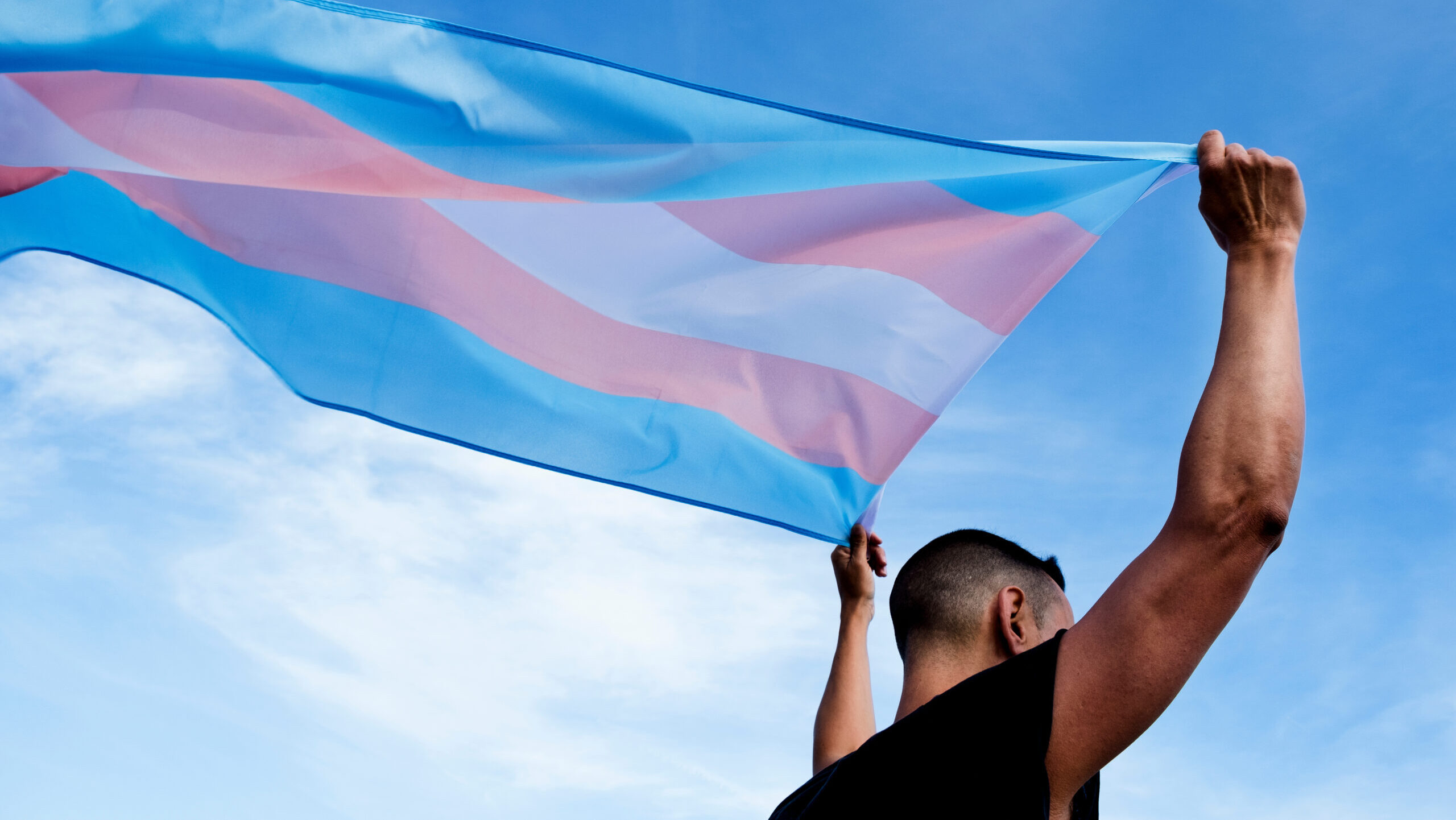In these fraught times, Project Transcend offers a supportive space for GMHC’s transgender, gender non-conforming and non-binary (TGNCNB) clients to be seen and heard – and to breathe.
That is what trans people have been fighting for since the early days of the trans liberation struggle, according to Project Transcend’s Program Coordinator Catherine Granum and Peer Navigation Specialist Mizz June Brown. “Every breath a trans person takes is an act of revolution,” Granum says, invoking Black trans icon Dr. Lourdes Ashley Hunter-Fowler.
“The TCNCNB community has always been at the forefront of human rights – as we find ourselves again, whether we want to be or not,” she adds. “We have existed throughout history as spiritual leaders and changemakers.”
Two such revolutionary changemakers in New York City were iconic trans activists of color Sylvia Rivera and Marsha P. Johnson. The veterans of the 1969 Stonewall Inn uprising went on to launch Street Transvestite Action Revolutionaries (STAR) and tirelessly fought for trans rights, visibility, and inclusion in the gay liberation movement.
Granum and Brown, who both knew Rivera, say these courageous ancestors personally inspired their own activism and advocacy. As a Stonewall Youth intern at GMHC in the mid-2000s, Brown created the concept for an ad campaign to combat transphobia and publicize the agency’s services for TGNCNB people. It featured an image of Brown regarding herself in a mirror with the tagline: “I see who I am. I like what I see. Do you?”
The question is just as relevant now, amid today’s resurgence of transphobic vitriol, Brown says. “A lot of our clients are made to feel invisible. And when they try to get the care they need, they can be gaslit and told they shouldn’t expect it.”
That is why empowering TGNCNB clients who are living with or at risk of contracting HIV is both a professional and personal calling for Granum and Brown. “There were very few trans people who looked like me in these positions of service, support, and power when I needed the support,” Brown says.
She rejoined GMHC in 2023 to offer that guidance. As Project Transcend’s peer navigator, Brown helps clients to prevent transmission of HIV and other STIs, connecting them with additional supportive services at the agency, whether mental health counseling, health care, legal aid, housing, or employment. She also refers clients to trusted community partners – for instance, Callen-Lorde for health care. “Using GMHC’s multiple connections with other organizations in the NYC metro area and my own, I am able to guide people to the right place,” Brown says.
Brown also leads a weekly empowerment group, Evolution, for Project Transcend clients, where recent topics have ranged from “Sexual Health at Any Age” to “Know Your Legal Rights” to “The Art of Balance.” At this moment, Granum says, “creating space for joy, growth, and rest” is imperative.
Centering client well-being
Asked what they are hearing from clients right now, Brown and Granum have the same answer: Fear. “There is a deep sense of confusion and a lot of fear,” Granum says. “Hostile rhetoric fuels stigma and enables violence in the daily lives of trans people.”
“In our community, we’ve always had to deal with that,” she adds. “We acknowledge the fear, but we’re not frightened.”
With the specter of cuts to HIV services in the news, Brown says, Project Transcend clients are worried about maintaining their HIV medications and treatment. They are concerned about losing critical support systems, such as Social Security and NYC’s HIV/AIDS Services Administration (HASA), a source of Medicaid, SNAP (food), cash assistance, and housing. “Housing has consistently been a concern,” Brown adds. “Right now, people aren’t sure if they will have a place to live, if housing funds get cut.”
Being denied correct ID is another concern, Granum says. If there is a mismatch between how someone presents and their ID, she explains, that reality can cut them off from employment, housing, and even healthcare, causing increased stress, depression, and anxiety.
“It’s a lot, all at once,” Brown says. “I am really emphasizing self-care, whatever that looks like. Turn that phone off if you need to. Be with family, or be by yourself. Talk to a mental-health counselor. Try making a really good dinner for yourself once a week.”
“There is power in not giving a knee-jerk reaction to what’s occurring right now,” she says. “Catherine said something brilliant in a group discussion recently – that not immediately reacting is itself an act of revolution.”
“When someone attempts to incite fear in you, your impulse is fight, flight or freeze,” Brown explains. “By intentionally disconnecting instead, you can gather your thoughts and organize. And then you can come back at your choosing.”
Particularly at this moment, Granum says, GMHC’s outreach within the TGNCNB community is vital, as is collaboration with community partners, such as the Brooklyn G.H.O.S.T. Project, a resource center for TGNCNB people of color, Black Trans Femmes in the Arts, and The Radical Hearts Collective.
Project Transcend is hosting its sixth annual TGNCNB Self-Care Summit on May 30 with the timely theme: Still We Rise: Self-Care as Resistance and Joy. “With all that is going on, in-person events provide a respite – a safe space to be together and feel celebrated,” Granum says.
Asked what trans allies need to know, she responds, “This is a crucial time. We are resilient—no matter what. Yet right now, we need people to stand up for us and stand with us in spaces where we can’t stand up for ourselves.”
“The clients we work with are mighty, beautiful, creative, and brave. So many have transcended unimaginable situations in awe-inspiring ways. I am proud of our continuing work to help them thrive,” Brown says.
To attend the TGNCNB Self-Care Summit, please contact Catherine Granum at catherineg@gmhc.org or Mizz June Brown at julienneb@gmhc.org
Stay in the Know
Sign up to receive our monthly newsletter, updates about events, and other helpful information.

